Introduction
Revelation is an important terminology in religion and theology, it is revealing or disclosing of truth or knowledge through communication with God. He (ألله Allah) revealed his final message for the guidance of the humanity through Prophet Muhammad (Pbuh), the seal of the Prophets (last Prophet), via the angel Gabriel. This last revelation, Qur’an, is the flawless final revelation of God to humanity, till the Last Day. The Qur’an has been revealed word by word and letter by letter[1], well preserved and protected by Muslims and Allah Himself. No other book of can claim, what the Quran[2] claims:
- This is The Book free of doubt and involution, a guidance for those who preserve themselves from evil and follow the straight path” (Quran;2:2)[3]
- God revealed Quran and will protect it (Quran;15:9)[4]
- Nobody, not even Prophet can change Quran (Quran;10:15)
- Allah has now revealed the best HADITH (Ahsan-al-Hadees).(Quran;39:23)[5],[6]
- In which Hadith[7] other than the Quran will they believe? (Quran;77:50)
- Who disbelieved in Quran, are doomed (Quran;90:19)
- The Messenger conveyed all what was revealed of this Book from the Lord. There is nothing that could alter His words (Quran;18;27, 6:19)
- Allah’s Words never change.(10:64)
- Quran is free from any ambiguity (Quran;18:1-2)
- Quran is the Criterion to judge right and wrong (Quran;25:1)
- Book with the truth, verifying old Scriptures and a guardian over it (Quran;5:48)
- Quran is the Book with truth, to judge between people in that in which they differed (Quran;2:213)
- “This book (Quran) to provide explanations for everything, and guidance, and mercy, and good news for the Muslims”(Quran;16:89)
- Ponder over its verses, and that those endowed with understanding may be mindful.(Quran;38:29)
- Allah neglected nothing in the Book” (Quran; 6:38)
- Verses of established meaning, further explained in detail (Quran;11:1)
- Falsehood cannot approach it (Quran;41:42)
- Book in truth and [also] the balance.(Quran;42:17)
- Prophet Delivered the messages of the Lord (72:28, 5:67)
- The most beautiful Message in a consistent Book wherein is reiteration.(Quran;39:23)
- Healing and mercy to the believers, and it adds only to the perdition of the unjust. (Quran;17:82)
- Bring mankind out of darkness into the light (Quran;14:1)
- In clear Arabic, easy to understand (Quran;12:2)
- Study the Quran, as it should be studied (Quran;2:121)
- Do they not then think deeply in the Quran, or are their hearts locked up?(Quran;47:24)
- Those concealing revelations of Quran are cursed by Allah (Quran;2:159)
- Who conceal in the scripture, for a cheap material gain, incur painful retribution.(Quran;2:174)
- In what Hadith after this (Quran) will they then believe?(Quran;7:185)
- These are the revelations of God which We recite to you for a genuine purpose. In what Hadith (statements) other than God’s and His revelations will they then believe? (Quran;45;6)
- Let them produce a Hadith (discourse) like it if they are true in their claim.(Quran;52:34)
- Deniers and Rejecters:
- Woe unto every fabricating impostor, the one who hears GOD’s revelations but ignores arrogantly, Grievous punishment awaits (Quran;45:7-8)
- Those who dispute Ayas have turned away from the right path (Quran;40:69)
- Those who deny the revelations, will suffer a dreadful doom.(Quran;45:11)
- And none but the Zalimun (polytheists, wrongdoers) deny Ayat (Quran;29:49)
- And be not like those who said, We hear, and they did not obey (Quran;8:21)
- Those concealing revelations of Quran are cursed by Allah (Quran;2:159)
- These (are the) Verses, (of) Allah We recite them to you in truth. Then in what Hadith after Allah and His Verses will they believe “(Quran;45;6) also (Quran;77:50), (Quran;7:185). Then let them produce a Hadith like this if they are truthful.(Quran;52:34) (2:23), (10:38), (11:13), (17:88).
Revelation / Wahi
The Arabic triliteral root wāw ḥā yā (و ح ي) occurs 78 times in the Quran[8], in two derived forms: 72 times as the form IV verb awḥā (أَوْحَىٰٓ), six times as the noun waḥ (وَحْى). It is used in the meanings of: revelation, revealed, inspire. “Wahi” is mostly used as revelations to the Messengers and Prophets:
“It (Quran) is but a divine revelation, which is revealed to him.” [Quran 53:4][9]
We have revealed to you (O Messenger) as We revealed to Noah and the Prophets after him; and We revealed to Abraham, Ishmael, Isaac, Jacob and the Prophets who were raised in the tribes, and Jesus, Job, Jonah, Aaron, and Solomon; and We gave David the Psalms.[Quran;4:163][10]
It is important that the Quran is mentioning that Prophet Muhammad (Pbuh) received Wahi/ Revelations [Quran 42:51,52] in the same way like other prophets and messengers. There is no mention of “Wahi Matloo and Wahi ghair matloo” (Recited Revelations and Non Recited Revelations (Wahi Matloo/ Jili and Wahi ghair matloo/ Khifi) these are later deviations (bida’a).
Judaization of Islam (Israeliyat)
The Oral Torah refers to the later works of the rabbinic period most prominently the Mishnah and the Gemara, jointly known as the Talmud that explain and expound upon the statutes recorded in the Written Torah[11]. However on the contrary the Rabbinic tradition holds (concocted doctrine) that Moses learned the whole Torah while he lived on Mount Sinai for 40 days and nights and both the Oral and the written Torah were transmitted in parallel with each other. Where the Torah leaves words and concepts undefined, and mentions procedures without explanation or instructions, the reader is required to seek out the missing details from supplemental sources known as the “Oral Law” or “Oral Torah[12]”, once put into writing it became Talmud and actual revealed scripture, the Torah, was put back under its shadow. [Like Quran has been placed in the shadow of 100 Hadith books].
Following the footsteps of Jews, the Hadith book proponents give similar arguments, that Hadith is Wahi Khiffi (Ghair Matlu/Non Recited) which according to them is necessary to explain the Quran the written Wahi/ Wahi Matlu, the concepts invented much later in 2/3rd century Hijrah[13]. This concept has already been explained in detail earlier in Part-2 (see DJ, November 2021)[14] This is “Judaisation of Islam”, (Israeliyat) to which Prophet (Pbuh) was averse, when he said:
“Be different from the Jews, who do not pray in their shoes or in their leather slippers (khufoof).” (Abu Dawood, 652)[15]
Abū Hurayra said; God’s Messenger (God bless him) came out to us while we were writing ḥadīths, and he said, “What is this that you are writing?” We said,” ‘Ḥadīths we have heard from you.” He said, “Do you want a book other than God’s book? [a kitāban ghayr kitāb illāh turīdūna], The communities before you were only caused to stray by the books they wrote along with God’s book.”
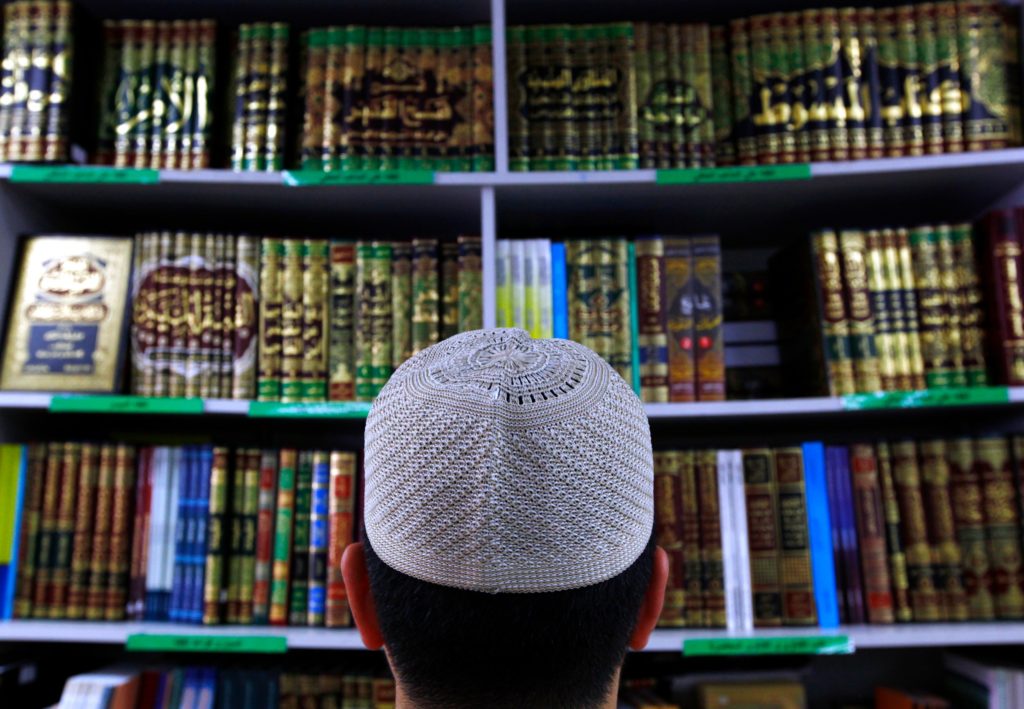
Abū Hurayra said, “Then we collected them single-mindedly and threw them in the fire.”[16]
This Hadith Book ban remained in force also by 4 Caliphs[17] and Companions[18], till all passed away. After the first century, Hadith books were written in defiance, like Jews wrote Talmud from Oral traditions which undermine the book of God.
“And the Jews said, “Our hearts are covered”; in fact Allah has cursed them because of their disbelief, so only a few of them accept faith.” (Quran;2:88)[19]
The Prophet (Pbuh) was well aware of disobedience tendencies among Muslims, due to special knowledge given to him by Allah, so he also said:
“You will follow the wrong ways of your predecessors so completely and literally that if they should go into the hole of a mastigure, you too will go there.” We said, “O Allah’s Apostle! Do you mean the Jews and the Christians?” He replied, “Whom else?” (Meaning, of course, the Jews and the Christians.) ](Muslim: 3456, Al-Bukhari:6781)[20]
We find Muslims praying without shoes, if anyone is found to enter the Masjid even with clean or new shoes, he may be expelled or even lynched. Judaisation of Islam is complete. So true was the true Messenger (Pbuh) of Allah 1400 years ago.
Jewish Theory of “Duality of Revelations” (Israeliyat) Penetrates Islam
“Why do you mix truth with falsehood and knowingly hide the truth?”[Quran:3:71], (Quran;2:42)
“Those of the Children of Israel who disbelieved were cursed by the tongue of David and Jesus, son of Mary. That was because they disobeyed and kept on exceeding the bounds (of the Law).” (Quran:5:78)[21]
The “Theory of “Recited (Manifest) Revelations & Non Recited[22] (Hidden revelations) or Wahi Jili (Matloo) & Wahi Khiffi (Ghair Matloo) (وحی متلو و غیر متلو)” is not found in Quan[23] or in any Hadith. It is an imported item from Jewish[24] traditions with Arabic names. [See Part-2][25]
This concept is NOT based on Command Verses [ آيَاتٌ مُّحْكَمَاتٌ هُنَّ أُمُّ الْكِتَابِ] (Command verses are clear statements, which do not require interpretation or explanation being clear with one meaning, these verses are the fundamental, foundation of the Book). Allah says:
“It is God who has revealed the Book to you in which some verses are clear statements (which accept no interpretation) and these are the fundamental ideas of the Book, while other verses may have several possibilities. Those whose hearts are perverse, follow the unclear statements in pursuit of their own mischievous goals by interpreting them in a way that will suit their own purpose. No one knows its true interpretations except God and those who have a firm grounding in knowledge say, “We believe in it. All its verses are from our Lord.” No one can grasp this fact except the people of reason.” (Quran;3:7)[26]
The Messenger of Allah (saw) said: “There are three kinds of knowledge:
- Command Verses (see Quran;3:7 above)[27]
- Proven Sunnah[28], [Practiced and passed through continuously from generation to generation, there are only 113 Mutawatir Hadiths[29] with the status closer to Sunnah by Imam Suyuti.]
- The Obligatory duties with justice and whatever is beyond that is bounty (fazal).”[30]
Following Command verses must be kept in view all along, while reading this article:
- Allah’s Words never change.(Quran:10:64)[31]
- Nobody, not even Prophet (Pbuh) can change Quran (Quran;10:15)[32]
- The Messenger conveyed all what was revealed of this Book from the Lord. There is nothing that could alter His words (Quran;18;27[33], 6:19)
- In which Hadith[34] other than the Quran will they believe? (Quran;77:50)
- Who disbelieved in Quran, are doomed (Quran;90:19)[35]
One of the six articles of Faith[36]demands a Muslims to believe in the messengers of God and books revealed to them, the Quran being the last book revealed to the last Prophet Muhammad (Pbuh). There is no mention of secret Wahi, or other books. [based on borrowed Jewish doctrine mentioned above] It becomes a challenging tasks for a sane Muslim who want to obey Quran and the Prophet (Pbuh) to believe in about 100 holy books, attributed to the Prophet (Pbuh), written privately more than century later by individual volunteers on the basis of a concocted theory (or any other reasons) Not based upon clear (command) verse but through interpretation, while the Prophet (Pbuh)[37] and Quran prohibits any book except Quran[38].
This is a big paradox, effort has been made to resolve it through a series of articles in DJ[39], this being the 6th or may be the last.
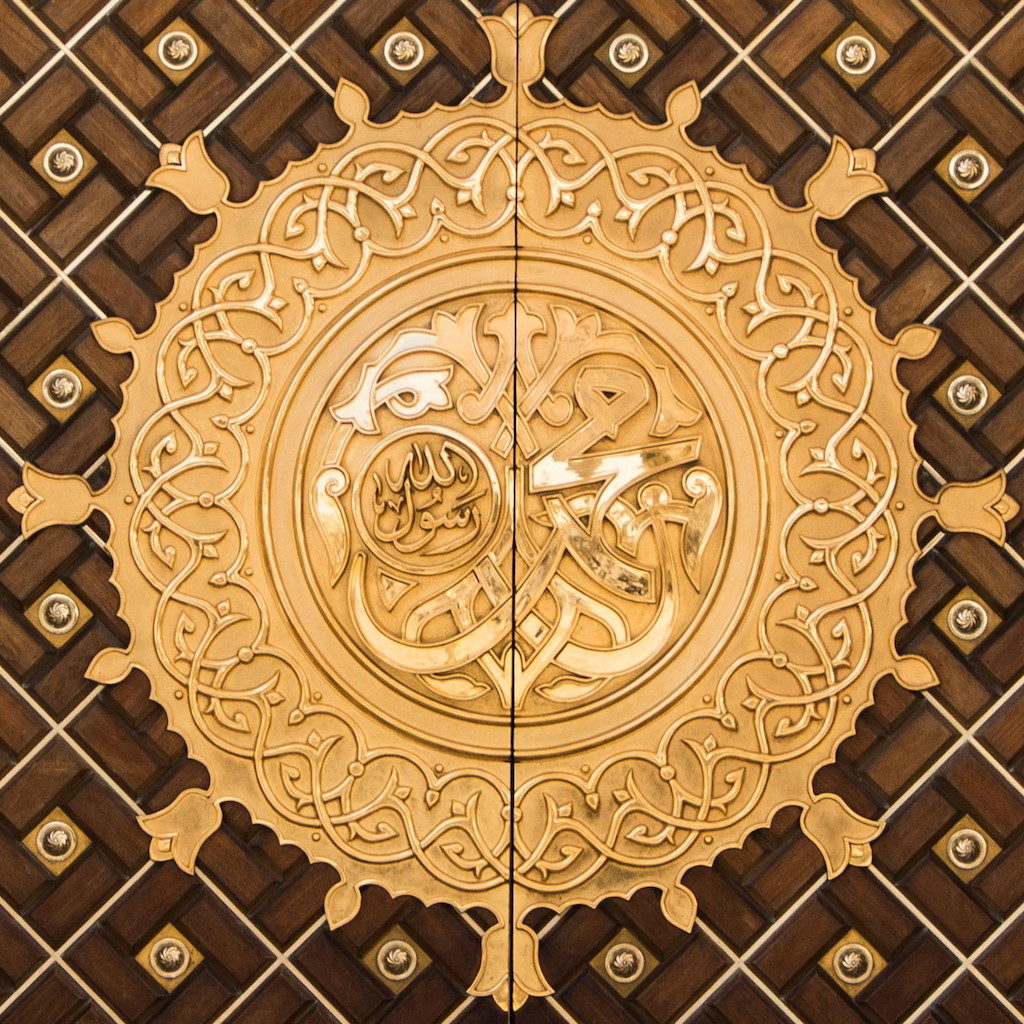
Prophet (Pbuh) Given Knowledge:
The Prophet (Pbuh) was not an ordinary person, apart from being appointed as Messenger of God, he was very intelligent blessed with very high intelligence quotient. He received Wahi/ Revelations from Allah which were recited, memorized and recorded, when verses were revealed, the Wahi/ Revelations are well preserved in the Quran, “God revealed Quran and will protect it (Quran;15:9)[40]. Every human is endowed with different types of knowledge and IQ by God. Einstein discovered the ‘Theory of Relativity’, Newton discovered ‘Gravity’, because God granted them scientific knowledge. There are many others who spend their lives and fail to make any discoveries.
Special Knowledge Given to Prophet (Pbuh) & some to Umer Al Khattab (R.A)
Narrated Ibn`Umar: I heard Allah’s Apostle saying,
“While I was sleeping, I was given a bowl full of milk (in a dream), and I drank of it to my fill until I noticed its wetness coming out of my nails, and then I gave the rest of it to `Umar.” They (the people) asked, “What have you interpreted (about the dream)? O Allah’s Apostle?” He said, “(It is Religious) knowledge.”[Bukhari,7006[41] Muslim 6190]
The special status of Umar bin Khattab is evident, its great blessing of Allah that he was chosen to get part of knowledge given to the Prophet (Pbuh). Relate it with the decision of Umer bin Khattab not to write Hadith books.
Moses requested of him (Al-Khadir): “May I follow you so that you may teach me from that True Knowledge which you have been taught?” He said, ‘You will not be able to have patience with me. (Quran;18.66)[42]
“O Moses! I have some of Allah’s knowledge which He has bestowed upon me but you do not know it; and you too, have some of Allah’s knowledge which He has bestowed upon you, but I do not know it….” [Bukhari 4725][43]
Hence Allah has his own means and power to bestow knowledge upon His servants. Why the scholars of 3rd century Hijra insist that Hadiths are Wahi, because they wanted to write Hadith books against command of Quran, Prophet (Pbuh) and Sunnah of four Rightly Guided Caliphs, so they had to invent the Bid’a, terminologies like Wahi Matloo and Ghair Matloo. Knowledge (ladunnā ʿil’ma) for Allah is sufficient for any additional things mentioned by Prophet (Pbuh). Any extra knowledge apart from Wahi, which Allah wants to impart to the Prophet (Pbuh) can be done by Him by any means He may choose. Since nothing has been specified as to how the additional knowledge other Quran was given to the Prophet (Pbuh) so instead of speculations it’s better to keep quiet and avoid guesswork.(Quran;18:22, 5:101)[44],[45]
Three Fundamental Sources of Knowledge in Islam, Hadith Excluded
The Messenger of Allah (Pbuh) said, there are three.[46] (sources) of knowledge:
1) Established Command (Muhkamat) Verses (of Quran)[47]
2) Proven, established Sunnah*
3) The duty of justice (fareeza adilah)
And whatever is beyond that is extra (fazal)(Mishkaat al-Masabih, Hadith No. 239, narrated by Abu Dawud (2885) and Ibn Majah (56), Al Dhabi summary Al Mustadrik 332/4)[48]
There is no mention of Hadith in three fundamental sources of knowledge, hence it is an extra knowledge. Sunnah and Hadith are not synonymous but different terms[49]scholars deliberately mixed them to trick the simple common Muslims. *Imam Sayouti had identified 113 Matwater Hadiths which are narrated by 10 narrators at each stage of the chain; they are considered as most reliable Hadiths, closer to proven sunnah. All other thousands of Hadiths are Ahaad (singular).[50] This is the most likely reason, that Prophet (Pbuh) did not include Hadith in fundamental source of Knowledge, he had himself differentiated between these two different terms[51]. This Hadith being in line with the Quran automatically gets a higher grade of acceptance.
One must question that; Can an extra/ additional source of knowledge (Hadiths) abrogate or overridden Quran verses which is the top Islamic source of knowledge? If answer is yet, “Yes”, then, one can only be reminded:
“the worst creatures in God’s sight are those who are deaf and dumb, and who do not use reason.(Quran:8:22)
Allah’s Words never change.(Quran:10:64)[52]
Nobody, not even Prophet can change Quran (Quran;10:15)[53]
Prophet (Pbuh) Gives Top Priority to Quran
Hold Fast to Quran for Guidance
Prophet (Pbuh) Said: “The Book of Allah contains right guidance, the light, and whoever adheres to it and holds it fast, he is upon right guidance and whosoever deviates from it goes astray. (Muslim: 6227)[54]
Prophet (Pbuh) said in his Farewell Sermon: “I am leaving among you such a thing that if you hold fast to it, you will never go astray, it’s the Book of Allah (Muslim:2950، Abi Dawood:1905)[55]
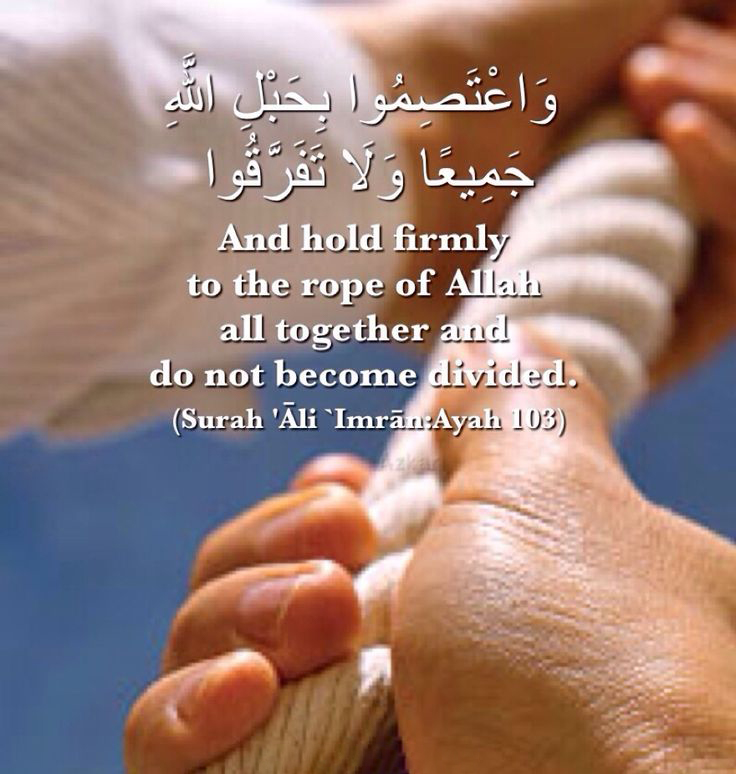
Quran, The Only Revelation: The Miracle given to Prophet (Pbuh)
Narrated Abu Hurairah (RA): The Prophet (Pbuh) said, “There was no prophet among the prophets but was given miracles because of which people had security or had belief, but what I was the one who was given a revelation that God had revealed to me[56]. [wa’iinama kan aladhi ‘uwtit wahyan ‘awhah allah ‘iilaya] So I hope that my followers will be more than those of any other prophet on the Day of Resurrection.” (Al-Bukhari;7274)
This Hadith makes it absolutely clear that the Prophet (Pbuh) was given only one Wahi/ Revelation, The Quran, which is a living miracle forever. Any non Muslim who desire to learn about Islam, he is given Quran to study and mostly they accept Islam.
True Guidance from Quran Only
Ali bin Abi Talib narrated that, Prophet (Pbuh) said: “The person who will seek guidance in non-Quran will go astray, The (Quran) is a strong rope of Allah, and it is strong Zikr and it is a straight path. [Tirmidhi 2906]
Hazrat Uma رض said, “Amma Badu (then after) Allah has chosen for his Apostle (Pbuh) what is with Him (Paradise) rather than what is with you (the world). This is that Book (Quran) with which Allah guided your Apostle, so stick to it, for then you will be guided on the right path as Allah guided His Apostle (Pbuh) with it.” [Sahih Bukhari 7269][57]
Ali (رضی الله ) says: Quran: The Only Revelation/ Wahi
Narrated Abu Juhaifa: I asked `Ali, “Do you have the knowledge of any Divine Inspiration besides what is in Allah’s Book?”
`Ali replied, “No, by Him Who splits the grain of corn and creates the soul. I don’t think we have such knowledge….” [Sahih Bukhari 3047][58]
Prophet (Pbuh) Gave Quran
“The Prophet (Pbuh) did not leave except what is between the bindings (of the Quran).” [Sahih Bukhari Hadith# 5019][59]
Will of Prophet: Follow Quran
“He (Prophet (Pbuh) made a will wherein he recommended Allah’s Book.”[Bukhari[60]5022]
Prophet’s (Pbuh) character was the Noble Quran
Qatadah reported: I said to Aisha, “O mother of the believers, tell me about the character of the Messenger of Allah, peace and blessings be upon him.” Aisha said, “Have you not read the Quran?” I said, “Of course.” Aisha said, “Verily, the character of the Prophet of Allah was the Quran.” (Ṣaḥīḥ Muslim 746)[61]
How can one expect the Prophet (Pbuh) to make a statement against Quran?
Merits of Quran
‘Ali bin Abi Talib said: I heard the Messenger of Allah (Pbuh) saying: Indeed there comes a Fitnah So I said: What is the way out from it O Messenger of Allah? He said:
- Allah’s book. In it is news for what happened before you, and information about what comes after you, and judgment for what happens between you.
- It is the Criterion (between right and wrong) without jest.
- Whoever among the oppressive abandons it, Allah crushes him, and whoever seeks guidance from other than it, then Allah leaves him to stray.
- It is the firm rope of Allah, it is the wise remembrance, it is the straight path, and it is the one that the desires cannot distort, nor can the tongues twist it, nor can the scholars ever have enough of it, and it shall not become dull from reciting it much, and the amazement of it does not diminish.
- It is the one that when the Jinns hear it, they did not hesitate to say about it: ‘Verily, we have heard a wonderful Recitation (this Qur’an)! ‘It guides to the Right Path, and we have believed therein.’
- Whoever speaks according to it then he has said the truth, and whoever acts according to it he is rewarded, and whoever judges by it he has judged justly, and whoever invites to it then he guides to the straight path. Take this O A’war!’. [Tirmidhi 2906][62]
Abrogation of Verses of Quran Not Permissible
The Prophet (Pbuh) found some people arguing about the Qur’an and said: “People before you also perished for this reason that they rejected some parts of book of Allah through other parts, in fact Book of Allah has been revealed that its parts confirm each other. Hence you should not deny some parts of the Qur’an with others., narrate what you understand from it, and leave what you do not know for those who know it. (Mishkat al-Masabih, Hadith 237)[63]
“The Messenger of Allah (Pbuh) said: You are using one part of the Qur’an against another part, and this is what led to the doom of the nations who came before you.”(Ibn Majah:85[64]
If one part of the Quran cannot abrogate another part, how can Hadith abrogate the Quran?
Allah’s Words never change.(Quran:10:64)[65]
Nobody, not even Prophet can change Quran (Quran;10:15)[66]
Hadiths- An Extra Source not Fundamental Source
Summarized from multiple Hadiths[67]:
Abū Hurayra narrated;[68] “God’s Messenger (God bless him) came out to us while we were writing ḥadīths, and he said: “What is this that you are writing?” We said,” ‘Ḥadīths we have heard from you.”
The Prophet (Pbuh) said:
(1) “Do you want a book other than God’s book? [a kitāban ghayr kitāb illāh turīdūna]
(2) The communities before you were only caused to stray by the books they wrote along with God’s book.”[69]
(3) No other books but the book of Allah
(4) Uphold the book of Allah
(5) Then write the book of Allah
(6) Do not take down anything from me, and he who took down anything from me except the Qur’an, he should efface that .
(7) Abu Hurayrah said: So we collected all that we wrote and burnt it.
Abū Hurayra said, “Then, I said, ‘May we relate ḥadīth [orally] on your authority, oh, messenger of God?’ He (Pbuh) said, yes [Summarized from Hadiths ] [70]
Prophet (Pbuh) said, there are three (sources) of knowledge [71] (Hadith is not one of them, it’s an extra knowledge)
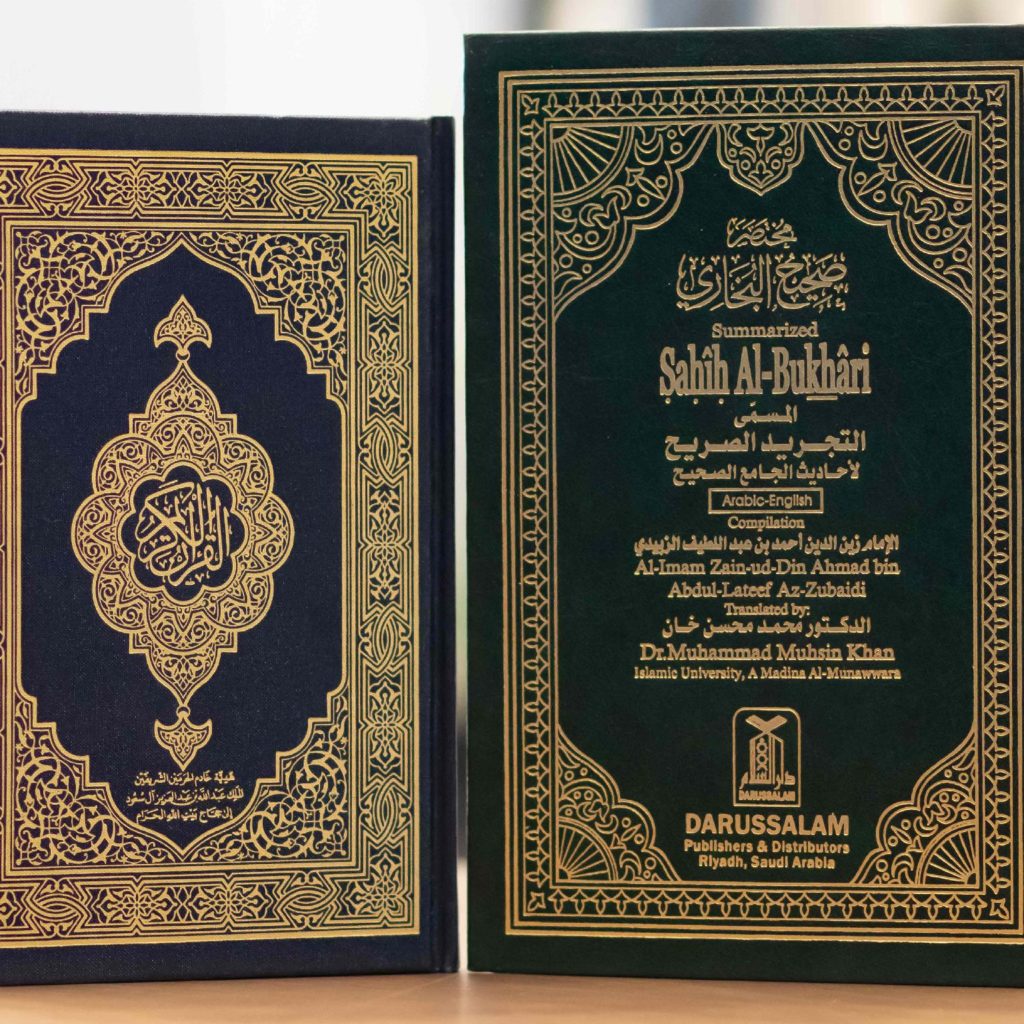
Righteous more false regarding Hadith
‘We do not see the righteous more false in anything than they are regarding Ḥadīth’. Imam Muslim said: ‘He was saying that falsehood flows upon their tongues although they do not intend to lie’. [Saheeh Muslim, Hadith:40]
Beware of Fake Hadiths
Messenger of Allah, peace and blessings of Allah upon him, he said: ‘There will be in the last of my nation a people narrating to you what you nor your fathers heard, so beware of them’. [Saheeh Muslim, Hadith:15][72]
Find True from False/ Fake Hadiths
Suwayd bin Sa’īd narrated to us, Alī bin Mus’hir narrated to us, he said: ‘Hamzah az-Zayyāt and I heard from Abān bin Abī Ayyāsh something like one thousand Ḥadīth’. Alī said: ‘So I met Hamzah then he informed me that he saw the Prophet, peace and blessings of Allah upon him, [in a dream], and he produced for him what he heard from Abān. However he [the Prophet] didn’t recognize any except a small amount [like] five or six [Ḥadīth]’.[Saheeh Muslim 79][73]
Lies Spread Lies without Verification
Abu Hurayrah (may Allah be pleased with him) narrated that the Messenger of Allah (may peace be upon him) said: In the last days there will be deceivers and liars who will bring to you hadiths which neither you nor your fathers have heard. Do not be tempted. [Muslim] [Mushkat Hadith:151]
Companions Abandoned Hadith Listening due to Lies
Ibn Abbās said: Indeed we would be narrated to on authority of the Messenger of Allah, peace and blessings of Allah upon him, at a time when one would not lie upon him, however when the people took the difficult [Munkar] and the docile [Sahīh], we abandoned listening to Ḥadīth from them’. [from Saheeh Muslim Hadith: 19]
Hadith Fabrications
Uthmān bin Abī Shaybah narrated to us, Jarīr narrated to us, on authority of Raqabah that ‘Abū Ja’far al-Hāshimī al-Madanī was fabricating narrations with words of truth, and they were not from the narrations of the Prophet (Pbuh), though he was transmitting them on authority of the Prophet (Pbuh)’ [Saheeh Muslim: 65]
Distortion in Hadiths
Imam Ahmad ibn Hanbal says that three types of Hadiths have been distorted. Prophecies, wars and commentary Hadiths. There are so many Hadiths in Bab al-Tafsir alone that Abu Zara’ah, a friend of Ibn Hanbal, memorized 140,000 Tafsir Hadiths. (Tojeeh p. 11-18)[74]
Caliph Abu Bakr Siddiq (رضی الله ) in a public address said: “You people differ in the Hadith today, this dispute will increase in the future, so do not narrate any Hadith from him (Prophet (Pbuh). If someone asks, say that we have the Qur’an. Consider what it declared permissible as permissible.[75]
Knowing these details, which establish much lower position of Hadiths as a source of Islamic knowledge; How can one use Hadiths to override to top source, Holy Quran, which declares:
“This is The Book free of doubt and involution, a guidance for those who preserve themselves from evil and follow the straight path” (Quran;2:2)[76]
This writer has taken pains to formulate “Hadith Verification Principles” to keep a check on available Hadiths literature to avoid its misuse.
Hadith Verification Principles
Presently emphasis is on the Chain of Narrators (asnaad), and not on text contents (matan) of Hadith. Prophet (Pbuh) was well aware of possibility of fake Hadiths and corruption once he prohibited making Hadith book, so he specified simple and practical Hadith verification criteria, that: Only Hadith in conformity with Quran, Sunnah and intellect be acceptable. It does not need special expertise, even a common Muslims with scriptural interest can easily distinguish real from fake. Here are some principles derived from Quran, Sunnah and Hadiths, not found in this form in any book:
1. Genuine Hadiths Agree with Quran & Sunnah
Abu Hurairah narrated that the Prophet (Pbuh) said: “You receive some conflicting Hadiths about me. Whatever is in agreement with the Book of Allah and my Sunnah will be from me, and those in contradiction with the Book (Qur’an) and my Sunnah will not be from me.” [ Al-Khateeb: Hadith: 1303][77]
- Hadith cannot invalidate any command of the Book of Allah (Imam Shafi’i): Allah Almighty has made it clear that only this book, Quran, can revoke the command given in the Book of Allah. Hadith cannot invalidate any command of the Book of Allah because it is subject to the Book of Allah. The scope of Sunnah is the explanation of the commands of the Book of Allah (Kitab al-Risalah by Imam Muhammad ibn Idris Shafi’i).[78]
- Imam Al Ghazali ( died 1111 AD) stated that a hadith could be rejected if the text (matn) contradicts Qur’an or more authentic hadith.
- Imam Al Soyouti (1445 -1505): “If you encounter a hadith contrary to reason or to an established correctly accepted principle, you should know that it is forged”.[79], [80]
- “The Messenger of Allah (Pbuh) said: You are using one part of the Qur’ân against another part, and this is what led to the doom of the nations who came before you.”(Ibn Majah:85[81], [82]. If one part of the Quran cannot abrogate another part, how can Hadiths, which is not basic but an extra source of knowledge, abrogate the Quran verses?
- It is narrated on the authority of ‘Abdullah ibn’ Abbas (may Allah be pleased with him) that a man said to the Prophet (Pbuh): What Allah wills and what you wills. Prophet (Pbuh) said: Do you associate me with Allah?! (don’t say so, but say that) what Allah alone wants (is what happens).[Narrated by Imam Ahmad.]
2. “Weak Tradition” due to Chain, supported by Quran becomes Authentic/ Saheeh and Vice Versa
The present criteria of Hadith classification for authenticity is not based upon the Hadith Criteria[83] based on Quran and Sunnah of Prophet (Pbuh), according to it a Hadith should be in, conformity with Quran, Sunnah and Intellects. According to Sayyid Abul Ala Maududi[84] (a renowned scholar of the 20th century) any Hadith, though may be week, if supported by clear verses of the Qur’an[85] take precedence over stronger one, not meeting this criteria.[86] Similarly a Hadith with strong (Saheeh) isnaad but in conflict with Quran becomes weak/ Daeef.
3. Hadith cannot Cancel/ Abrogate Quran Verses
Nobody, not even Prophet can change Quran (Quran;10:15)[87]
“O Prophet! Recite what has been revealed to you from the Book of your Rabb: no one is authorized to change His Words and if you dare to make any change, you will find no refuge to protect you from Him”. (Quran:18:27)[88]
The Messenger (Pbuh) of God, said: “My words do not abrogate the word of God, and the word of God abrogates my words، and the word of God abrogates others. [Mishkat Al Masabih Hadith: 189]
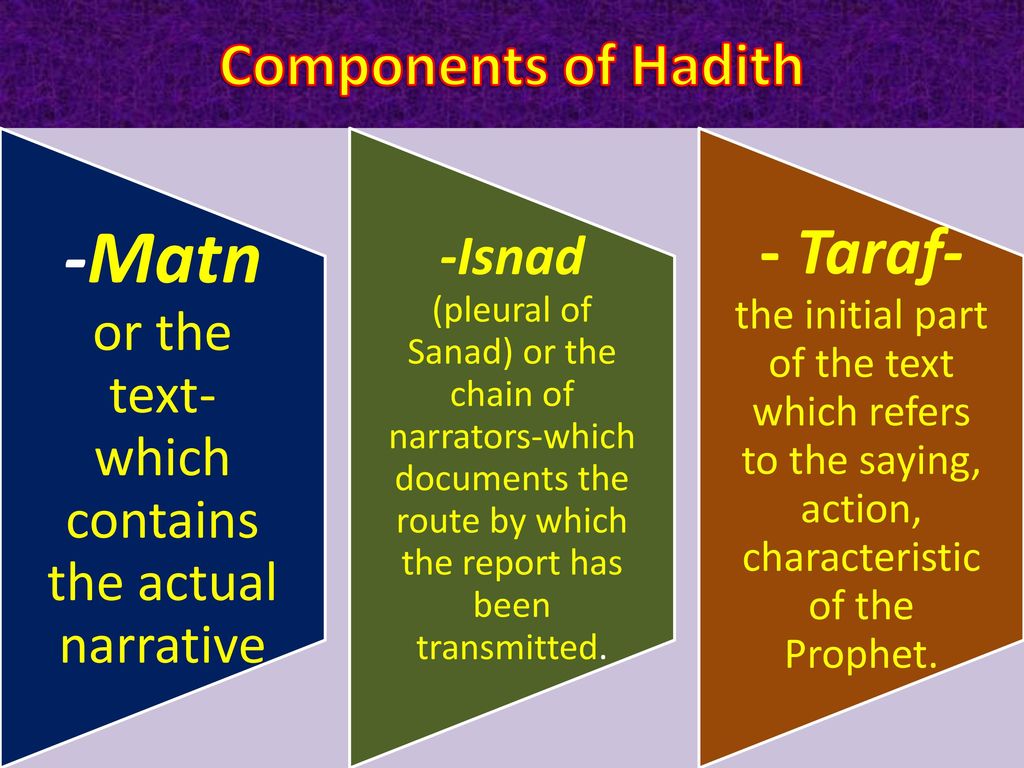
4. Imam Shafi’s Criteria for Hadith Refutation
Blessed is He Who revealed upon His servant the standard by which to discern the true from the false, so that to all the world it might be a warning (Quran;25:1)[89]
Imam Shafai in his famous book Al-Risalah[90] writes: “(in verse;10:15) Allah Almighty has told His Prophet (Pbuh) that you are only responsible for following the divine revelation and you cannot change it on your own. The statement that “It is not for me to introduce changes in it of my own accord.” Nothing else can repeal a book of law. Just as only Allah Almighty can issue His command, so too it is up to Him to keep (or cancel) His command forever. No one else has this option.
Every Hadith narrated from the Prophet ﷺ in this way, if it does not seem to us to be in accordance with the Qur’an, can be refuted by saying, “He (Prophet (Pbuh) did not say so.” In this way, it would be considered correct to reject the Hadith on these two grounds:
1). If the words of the Hadith are slightly different from the words of the Qur’an even though its meaning is in accordance with the Book of Allah (then it should be rejected) or
2).If its words in Hadith are a little more than the words of the verse from Quran (even then it should be rejected) even if there is a slight difference between them. [Kitab al-Risalah by Imam Muhammad ibn Idris Shafi’i: Chapter 6: Commands on Abrogation and Abrogated]
It is evidently clear from above that the subject Hadiths under discussion [given something like Quran / introducing changes in commandment given in Quran or abrogation of verses] cannot be the statements by the Prophet (Pbuh).
5. Hadith be Intellectually Acceptable
“the worst creatures in God’s eyes are those who are deaf and dumb, and who do not use reason.(Quran:8:22)
It is narrated from Hazrat Abu Hameed and Abu Aseed that the Holy Prophet said:
“When you hear a Hadith about me that makes your heart soften and your skin soften and you feel close to it, I am more entitled to it than you. And if you hear something that your heart is unfamiliar with, your hair and your skin are not soft and you feel distant from it, then I am far away from it.[Masna Ahmad: 22505][91]
6. Truthfulness, Honesty & Good Memory of Narrator’s
O ye who believe! If a wicked person comes to you with any news, ascertain the truth,(Quran;49:6)[92]
The authenticity of contents, memory and truthfulness of all the narrators in the chain is important, it’s not appropriate to accept narration from people of doubtful character.
Prophet (Pbuh) said: “May Allah keep him enjoying and rejoicing who heard something from me, remembered it and kept it well in his mind and then narrated it to others. ”[Reported by al-Imam ash-Shafi‘i in al-Musnad (p. 240) and ar-Risala (p. 401 # 1102); and at-Tabarani in al-Mu‘jam al-Kabir, vol. 2, p. 126 # 1541.][93]
More at: https://bit.ly/Hadith-Basics[94]
Al-Hakim reports through Thabit ibn Qays, that the Holy Prophet (Pbuh) said to his Companions: “You (the Sahaba) are listening and receiving from me and people (at-tabi‘un i.e. the Successors) will listen and receive from you. Then people (the atba‘ at-tabi‘un) will listen and receive from those (the Successors) who listened and received from you. Then people (the fourth generation) will listen and receive from those (the atba‘ at-tabi‘un) who were the audience and recipient of the Successors, who had listened and received from you. [Related by al-Hakim in Ma‘rifa ‘Ulum al-Hadith, p. 60.]
Conclusion:
Keeping all the factors mentioned above, the best possible benefits may be drawn from Hadith literature, which is not the primary source but falls under additional or extra source of knowledge in Islam as mentioned by the Prophet (Pbuh) in a Hadith[95].
To be continued …… “Was Prophet (Pbuh) Given, Something like Quran?”
References: https://bit.ly/Revelations-Wahi





